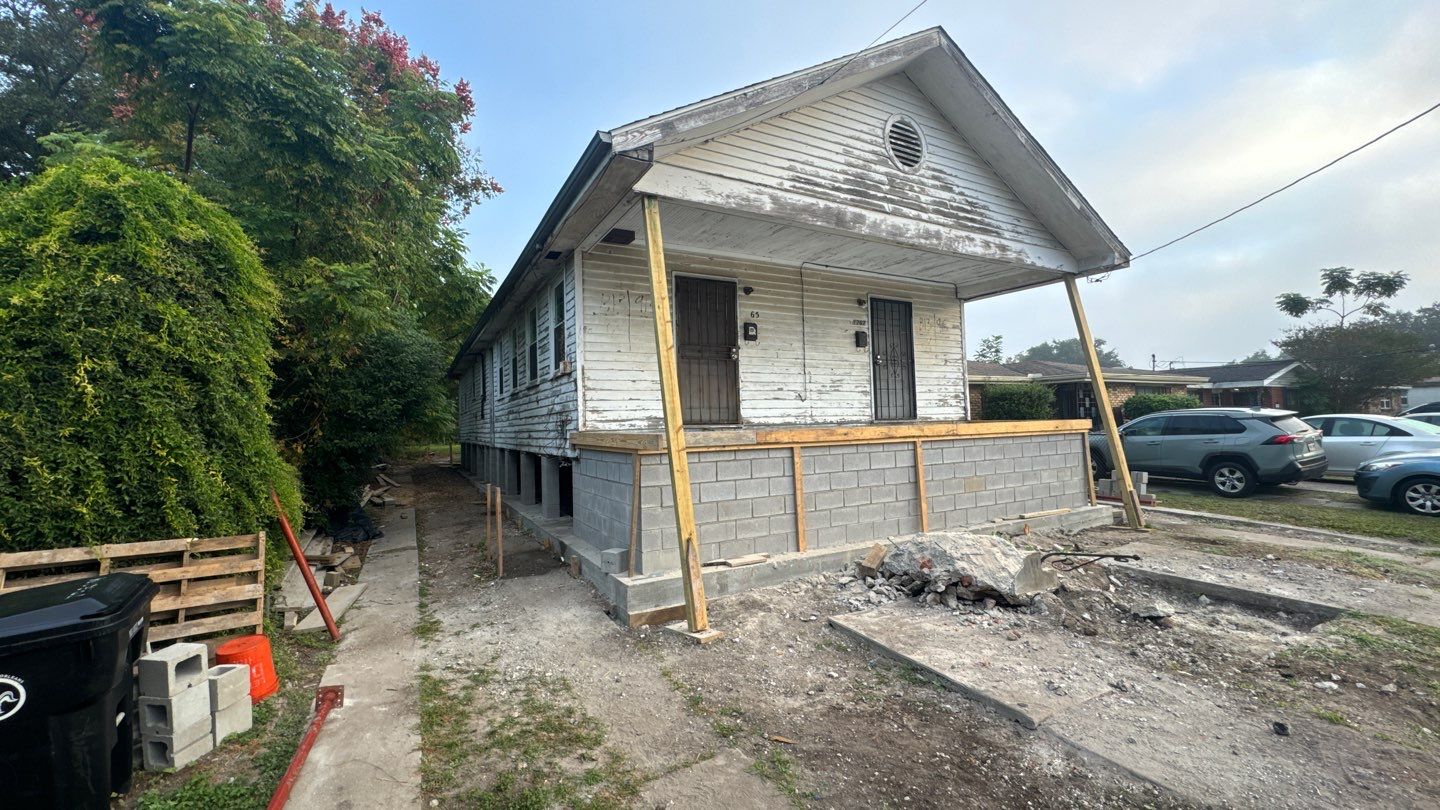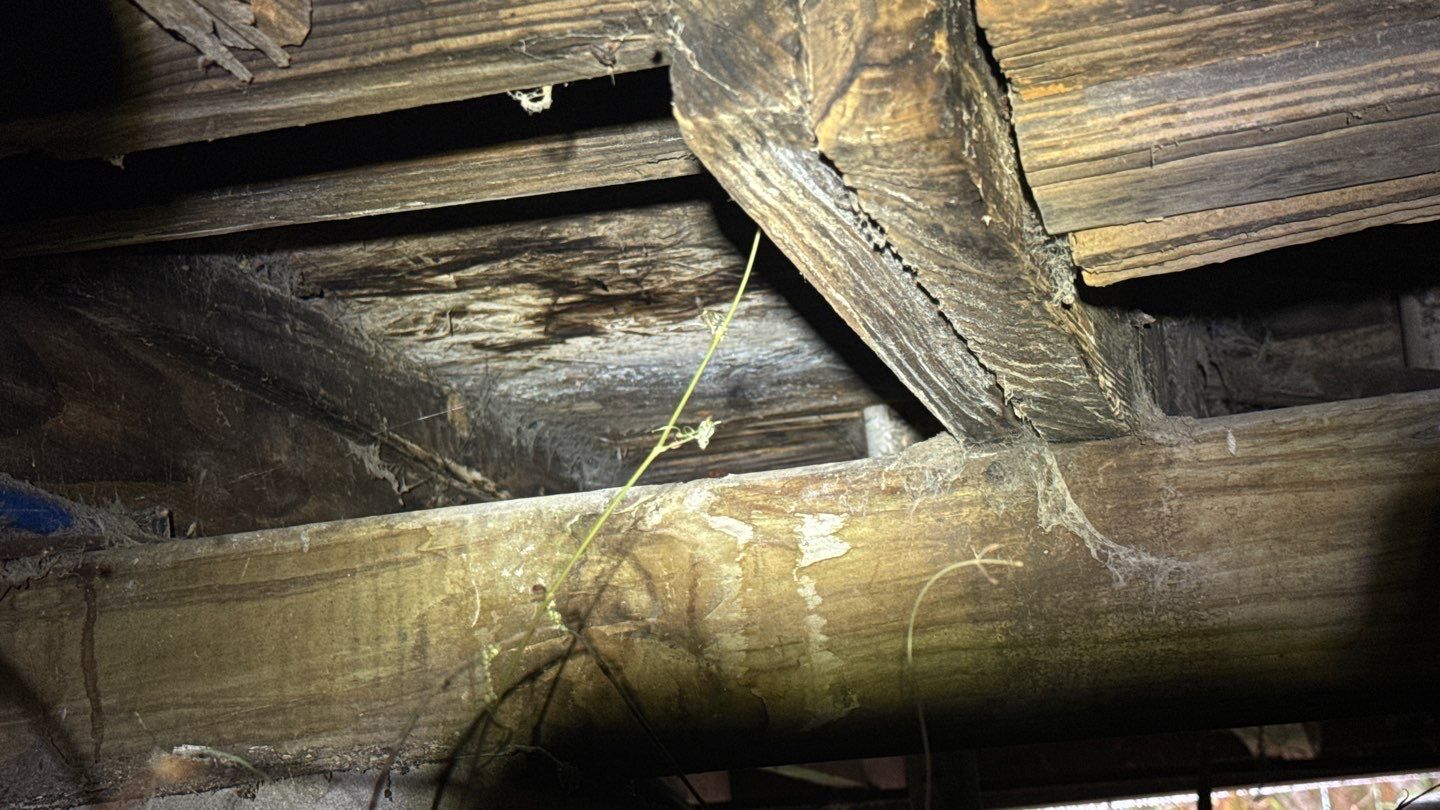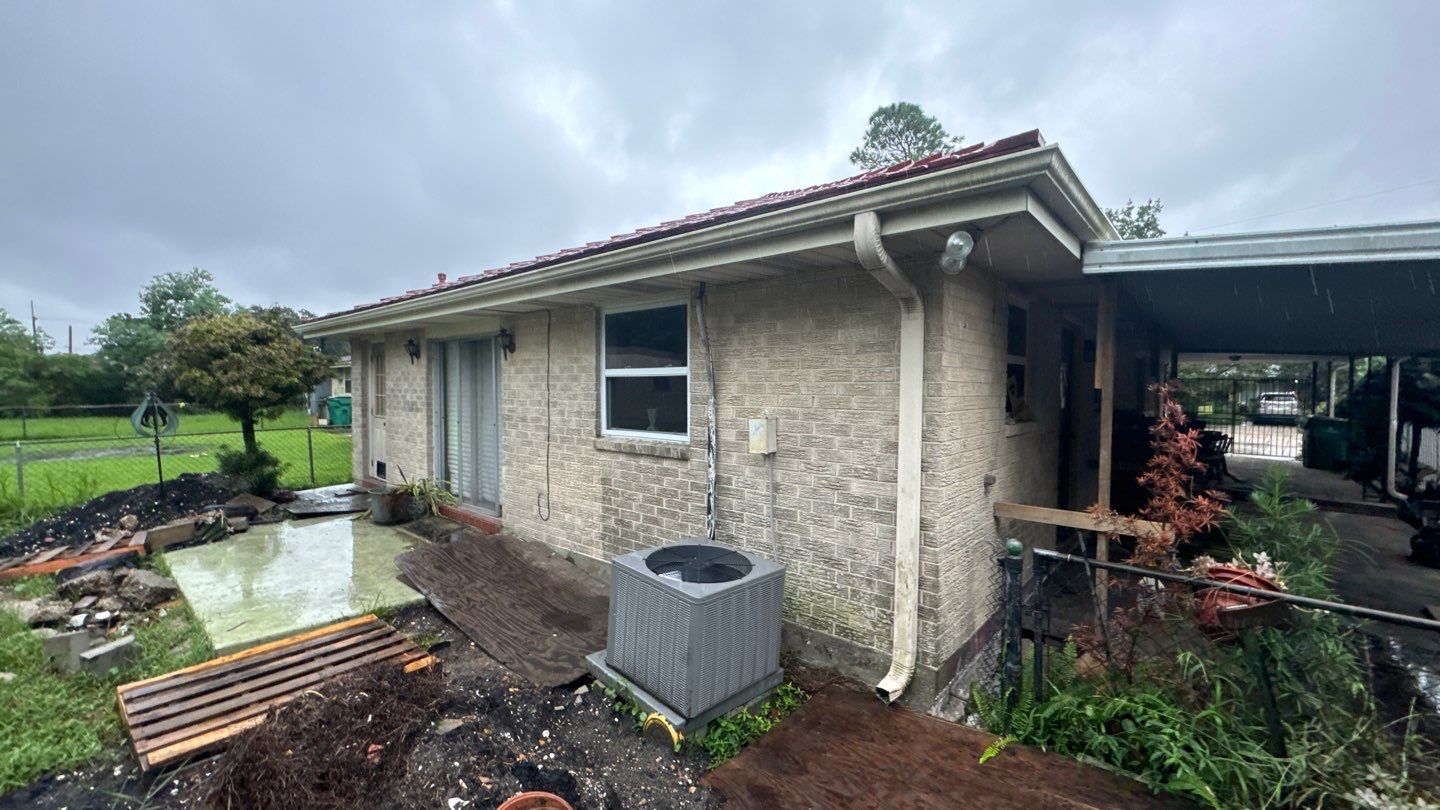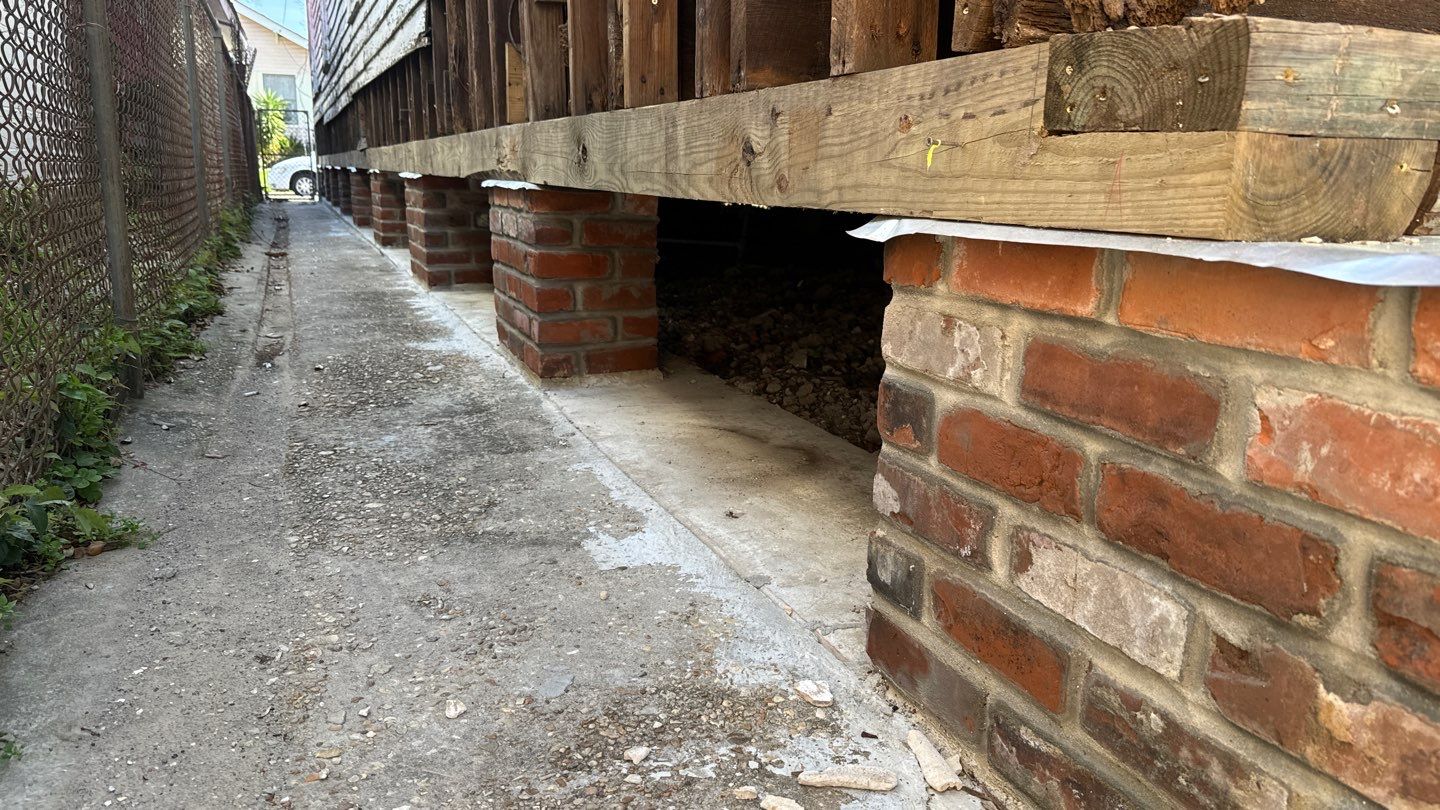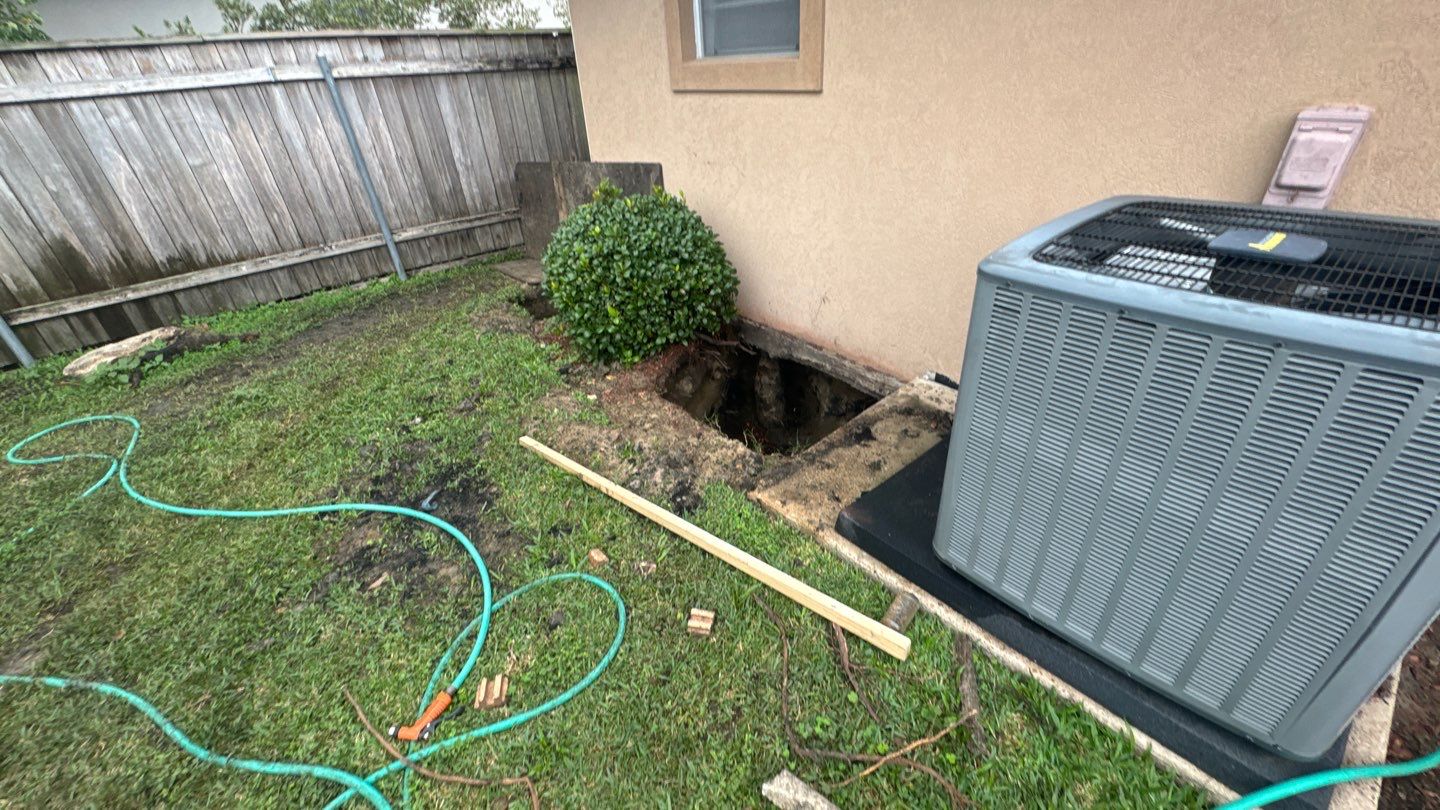
Home Leveling Guide for Baton Rouge Residents: Keep Your Foundation Solid
Home Elevation
11-Nov, 2024
Home Leveling Guide for Baton Rouge Residents Foundation issues can be a major concern for homeowners, especially in areas like Baton Rouge, where clay soil and heavy rains can lead to ground shifting. Home leveling corrects these foundation shifts, stabilizing your home and preventing further damage. This guide will provide Baton Rouge residents with an […]
Home Leveling Guide for Baton Rouge Residents
Foundation issues can be a major concern for homeowners, especially in areas like Baton Rouge, where clay soil and heavy rains can lead to ground shifting. Home leveling corrects these foundation shifts, stabilizing your home and preventing further damage. This guide will provide Baton Rouge residents with an overview of home leveling, why it’s essential, and practical steps to keep your home’s foundation secure and level.Why Home Leveling is Essential for Baton Rouge Homes
The unique environmental conditions in Baton Rouge contribute to foundation issues that often require leveling. With a mix of clay soils and frequent heavy rainfall, homes in this region are susceptible to foundation settlement and uneven floors. Here’s why home leveling is so critical:- Preventing Structural Damage: A misaligned foundation can cause cracks in walls, uneven floors, and misaligned doors and windows.
- Maintaining Property Value: A well-maintained foundation ensures the long-term value of your home and helps avoid costly repairs later.
- Safety and Comfort: Leveling reduces trip hazards caused by sloped floors and misaligned doors.
Signs That Your Baton Rouge Home May Need Leveling
Knowing the warning signs of foundation issues can help you catch problems early. Here are some indicators that your home might need leveling:- Visible Cracks in Walls or Foundation: Cracks in drywall, bricks, or along the foundation can signal settling or shifting.
- Uneven or Sloping Floors: Floors that feel slanted or uneven indicate a misaligned foundation.
- Doors and Windows Misalignment: If doors and windows stick or won’t close properly, your foundation may have shifted.
- Separation of Exterior Features: Gaps between bricks, walls pulling away from your home’s framing, or visible space between your chimney and siding can all point to foundation issues.
Home Leveling Methods Used in Baton Rouge
There are several approaches to leveling a home’s foundation, and the right method depends on your home’s construction, soil type, and the extent of damage. Here’s an overview of the common methods:Concrete Slab Leveling
For homes built on concrete slabs, a common issue is soil shifting beneath the slab. Mudjacking, also called slabjacking, involves pumping a cement mixture under the slab to raise it back to its original position.Pier and Beam Leveling
For pier and beam foundations, home leveling typically involves adding or adjusting the piers beneath the home. This process might involve adding concrete or steel piers to stabilize areas where shifting has occurred.Helical Piers
Helical piers are installed beneath the foundation and can reach deep into the soil for support. They are particularly useful for Baton Rouge homeowners facing severe soil issues and shifting.DIY vs. Professional Home Leveling
While minor foundation issues might seem manageable, home leveling is generally not a DIY project. Here’s why it’s best left to professionals:- Technical Expertise: Foundation leveling requires knowledge of soil conditions, load-bearing capacities, and structural integrity.
- Safety Risks: Poor leveling attempts can cause further damage and create additional hazards.
- Proper Equipment: Professional leveling requires specialized equipment that is often expensive and impractical to rent.
Steps for Home Leveling in Baton Rouge
The leveling process generally involves several steps. Here’s a breakdown of what to expect:Step 1: Initial Inspection
A licensed professional will examine your foundation, interior, and exterior of your home to determine the cause of the misalignment.Step 2: Selecting a Leveling Method
Based on the inspection, the specialist will recommend an appropriate leveling solution, such as mudjacking, pier adjustments, or helical piers.Step 3: Foundation Adjustment
Once a method is selected, the leveling process begins. This step can take a few days to several weeks, depending on the extent of the damage and the method used.Step 4: Final Assessment and Follow-up
After the leveling is complete, the contractor will conduct a final inspection to ensure stability. Follow-up visits may be scheduled to monitor the foundation’s condition.How Baton Rouge Homeowners Can Prevent Future Foundation Issues
Taking proactive measures to care for your foundation can reduce the risk of future leveling needs. Here are a few key tips:Control Soil Moisture
Install gutters and downspouts to direct water away from your foundation. This helps prevent the expansion and contraction of soil that can lead to foundation settling.Address Plumbing Leaks Promptly
Leaking pipes can cause soil under your home to erode, leading to uneven settlement. Regularly inspect plumbing and address any leaks immediately.Maintain Your Landscaping
Plant trees and shrubs away from the foundation to avoid root interference and prevent excessive moisture near the base of your home.Choosing the Right Home Leveling Contractor in Baton Rouge
Finding a reliable contractor is critical to a successful leveling project. Here are some considerations when selecting a home leveling service in Baton Rouge:- Experience and Expertise: Look for contractors with experience in local soil conditions and various leveling methods.
- Customer Reviews: Reviews on platforms like Google and Yelp can provide insight into the quality of work and customer satisfaction.
- Certifications and Licensing: Ensure the contractor holds proper licensing and insurance for foundation work.
Cost of Home Leveling in Baton Rouge
The cost of home leveling varies based on several factors, including the size of your home, the extent of foundation damage, and the leveling method. Here’s a general breakdown:- Minor Foundation Cracks: Simple crack repairs may cost between $500 and $1,000.
- Mudjacking or Slabjacking: For concrete slabs, mudjacking typically costs between $3,000 and $6,000.
- Pier and Beam Leveling: This method may cost $14,000 to $28,000, depending on the extent of repair needed.
- Helical Piers: Installation of helical piers for severe foundation issues can cost between $11,500 and $22,500 per pier.
Final Tips for Maintaining a Level Foundation in Baton Rouge
Ensuring a stable foundation requires regular maintenance and prompt attention to any early warning signs. Here are a few final tips:- Annual Inspections: Schedule an annual inspection to catch foundation issues before they worsen.
- Seasonal Adjustments: In summer, consider periodic watering of soil around your foundation to prevent excessive shrinkage, which is common in clay soil.
- Regular Foundation Maintenance: Keep gutters clean, inspect for signs of erosion around your home, and address any structural issues promptly.

Brent Moran
Helpful Tips, Real Stories & Home Repair Wisdom


